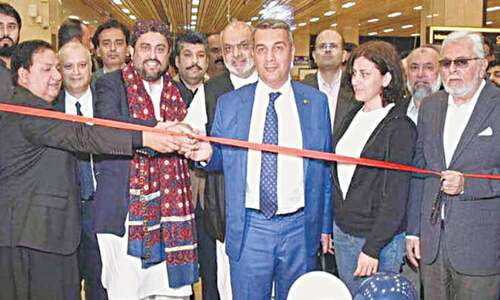KARACHI: The provincial health authorities announced on Sunday that the two suspected Crimean-Congo Hemorrhagic Fever (CCHF) patients, who were under treatment at a private hospital, had been discharged after their laboratory reports came back negative.
The two patients, both doctors at a hospital in Punjab, had come to Karachi for treatment with their senior colleague, a surgeon who was tested positive for Congo virus and died a day earlier.
“Both doctors, Dr Owais and Dr Alam, were tested negative and have been discharged from the Aga Khan University Hospital,” said focal person of the provincial health department Dr Syed Zafar Mehdi, while rejecting reports that there was one CCHF positive patient at the AKUH. No further details on their cases were available, he added.
The three doctors worked at the Bahawal Victoria Hospital (BVH) in Bahawalpur district and operated on a female student nurse, a CCHF positive case.
The young woman, Ms Nadia, hailing from Lodhran, died during treatment over two weeks ago at the BVH, while Dr Sagheer Sameejah, Dr Owais and Dr Alam were suspected of having contracted the Congo virus and were referred to the AKUH.
Two patients died of Congo virus in Karachi last year while four persons suffering from the same disease recovered.
Meanwhile, the health secretary is due to chair a meeting on Monday on infection control with focus on Congo preparedness. The meeting will be attended by officials including medical superintendents of all government hospitals.
Contact with infected patients
Raising concern over these cases, health experts have called upon the government to make infection control protocols a mandatory part of healthcare settings. They also urged the concerned authorities to carry out investigations into these cases and medically examine all those who recently came into contact with the CCHF positive patients.
Infection control measures at health settings, they said, had assumed greater significance in today’s age and time. These protocols are important not only for the sake of preventing infection transmission but also for minimising the chances of hospital acquired infections, and tackling the challenge of antibiotic resistance.
“Little information is available as to how the female student nurse contracted the disease. Her family members should be carefully examined for the CCHF infection,” said Dr Altaf Ahmed, executive member of the Medical Microbiology and Infectious Diseases Society of Pakistan.
The people who travelled with the CCHF positive patient, he said, should also be examined.
The tick-borne virus of the CCHF, he pointed out, was primarily transmitted to people from ticks and livestock animals, while human-to-human transmission could also occur resulting from close contact with the blood, secretions, organs or other bodily fluids of the infected person.
“Small droplets containing infectious virus particles are generated by coughing and sneezing, and can be transmitted if the patient is not wearing a mask or something that could prevent the spread of germs,” he said.
According to him, the government should legislate on infection control, establish infection control departments at all healthcare facilities, approve a certified course on infection control, and provide the staff with required training.
Chief executive officer Shaukat Khanum Memorial Cancer Hospital and Research Centre and consultant physician on infectious diseases, Dr Faisal Sultan, however, believes that institutional commitment and continued training is more important than mere legislation.
“We have often seen that legislations don’t materialise into actions on the ground. Infection control, I think, is everybody’s job,” he said, adding that putting in place infection control standard precautions in healthcare was doable.
The subject of infection control at health facilities, he said, was the responsibility of the Punjab Healthcare Commission, which was operational.
Published in Dawn, August 1st, 2016














































